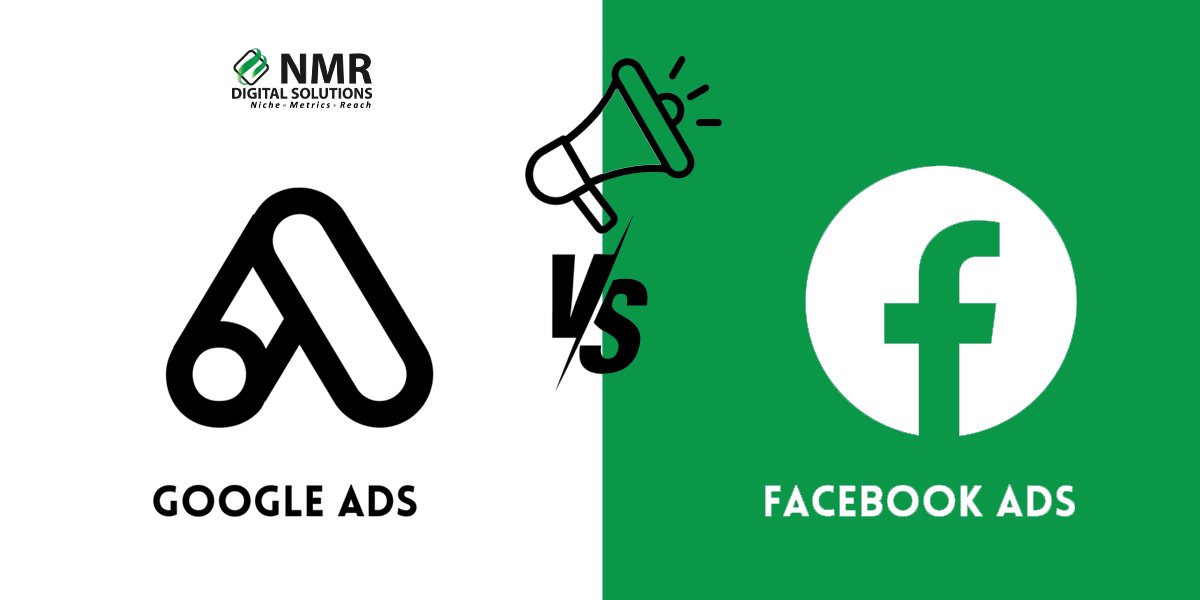1. Introduction
In the ever-evolving world of digital marketing, choosing the right platform for your advertising campaigns can be a daunting task. Google and Facebook are two of the biggest players in the game, each offering unique advantages and capabilities. From Google Ads’ high conversion rates to Facebook Ads’ precise targeting options, the decision of which platform to use can greatly impact the success of your marketing efforts. This comprehensive analysis will delve into the strengths and weaknesses of Google and Facebook marketing, helping you make an informed choice on the best platform for your specific needs.

2. Understanding the differences between Google and Facebook marketing
To make an informed decision, it is crucial to understand the fundamental differences between Google and Facebook marketing. Google Ads primarily focus on search intent, targeting users actively searching for specific keywords. On the other hand, Facebook Ads leverage user data and interests to target audiences based on demographics, behaviors, and preferences. By comprehending these variations, marketers can tailor their strategies to align with the platform that best suits their advertising goals. Stay tuned as we explore the nuances of Google and Facebook marketing to help you choose the optimal platform for your marketing campaigns.

3. Target audience and reach
When selecting between Google and Facebook for marketing, consider your target audience and reach carefully. Google Ads can be highly effective for reaching users at the moment they are actively searching for your products or services, making it ideal for capturing high-intent audiences. On the other hand, Facebook Ads provide robust targeting options based on user demographics, behaviors, and interests, allowing you to reach a broader audience and build brand awareness. Understanding your target audience and desired reach will help you determine which platform aligns best with your marketing objectives. Stay tuned for more insights on optimizing your marketing strategy with Google and Facebook.
4. Cost-effectiveness and ROI
Analyzing the cost-effectiveness and return on investment (ROI) is crucial when deciding between Google and Facebook for marketing. Google Ads typically follow a pay-per-click (PPC) model, where you pay only when a user clicks on your ad, making it a cost-effective option for driving immediate conversions. On the other hand, Facebook Ads offer various pricing models, including cost-per-click (CPC) and cost-per-impression (CPM), providing flexibility in budget management. Evaluating the cost per acquisition and overall ROI on each platform based on your campaign goals will guide you in selecting the platform that offers the best value for your marketing budget. Stay tuned for further insights on maximizing cost-efficiency and ROI with Google and Facebook marketing strategies.
5. Ad formats and targeting options
Ad formats and targeting options play a significant role in determining the effectiveness of your marketing campaigns on Google and Facebook. Google Ads offer a variety of ad formats such as text ads, display ads, and video ads, allowing you to choose the most suitable format for your target audience. With robust targeting options like keywords, demographics, and interests, you can reach users actively searching for products or services similar to yours. Conversely, Facebook Ads provide unique ad formats like carousel ads and lead ads, along with detailed audience targeting based on demographics, interests, behaviors, and custom audiences. Understanding these differences will help you leverage the strengths of each platform to craft tailored and impactful marketing strategies. Stay tuned for expert tips on optimizing ad formats and targeting options on Google and Facebook.

6. Tracking and measuring success
Tracking and measuring the success of your marketing campaigns is crucial for optimizing your efforts on Google and Facebook. Both platforms offer robust analytics tools to monitor key metrics such as click-through rates, conversion rates, and return on ad spend. Google’s Analytics and Facebook’s Ads Manager provide valuable insights into the performance of your ads, enabling you to make data-driven decisions for future campaigns. By tracking and analyzing the performance metrics on Google and Facebook, you can identify which platform is delivering the best results for your business objectives. In the upcoming section, we will delve into the importance of tracking and measuring success to ensure a successful marketing strategy on both Google and Facebook. Stay tuned for actionable insights and best practices to achieve your marketing goals effectively.
7. Making an informed decision for your business
When choosing between Google and Facebook for your marketing campaigns, it’s essential to make an informed decision based on data and analysis. Consider factors such as your target audience, campaign objectives, budget, and industry trends to determine which platform aligns best with your business goals. Conduct A/B testing on both platforms to compare performance and identify which one generates higher ROI. Remember that a successful marketing strategy requires flexibility and adaptation, so be prepared to adjust your approach based on the insights gathered from tracking and measuring your campaign metrics. Stay tuned for our next section, where we will provide a detailed comparison of the key features and benefits of Google and Facebook to help you make an informed choice for your business.

8. Conclusion: Choosing the best platform for your marketing strategy.
In conclusion, selecting the right platform for your marketing strategy is crucial for achieving optimal results. Google and Facebook offer unique advantages that cater to different business needs. Analyzing your target audience, objectives, budget, and industry trends will guide your decision-making process. A/B testing is essential to determine which platform delivers superior ROI for your campaigns. Remember, flexibility and adaptability are key to refining your marketing approach for maximum impact. In the next section, we will delve deeper into the specific features and benefits of both Google and Facebook to help you make an informed choice that aligns with your business goals. Stay informed and empowered in your marketing decisions.
